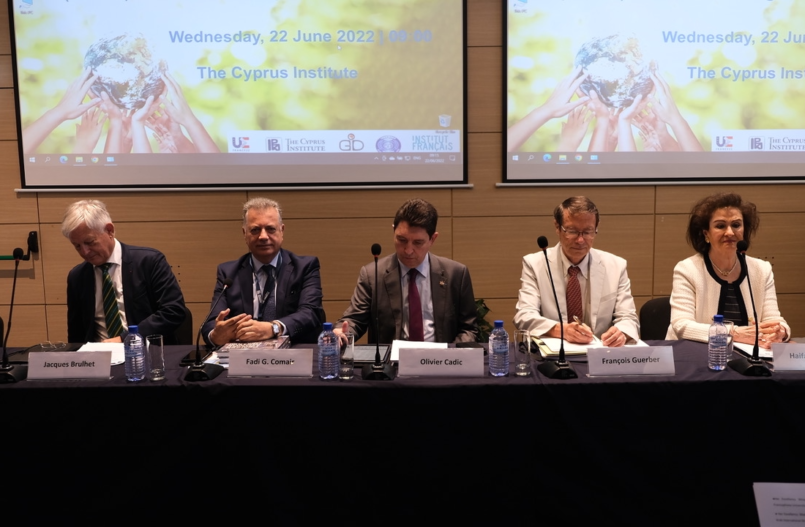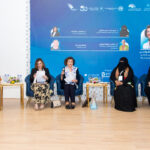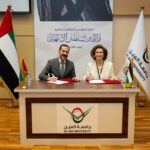On 22 June AIWF President & Founder Haifa Al Kaylani participated as a keynote speaker at a high-level conference in Nicosia, held under the framework of the Eastern Mediterranean and the Middle East Climate Initiative at the Cyprus Institute under the title ‘Hydrodiplomacy and the Nexus in the EMME – Towards a Regional Cooperation’ and under the auspices of the French Presidency of the Council of the European Union and the Cyprus Government Initiative for Coordinating Climate Change Actions in the Eastern Mediterranean & Middle East region (EMME-CCI).
The conference provided a much-needed platform for solutions-oriented dialogue on hydro-diplomacy in the Mediterranean and surrounding countries. Discussions centred on the significance of water to economic security as well as to cultural and natural heritage, the role of agriculture in sustainable development of Mediterranean countries, and the impact of climate change in conflict environments. These are all issues of critical importance for the MENA Region, where accessible fresh water in the region has fallen by two thirds in the past 40 years and now amounts to 10 times less per capita availability than the world average. Food and water insecurity are increasingly being linked to displacement and conflict in the region, with real-time examples affecting countries such as Jordan and Lebanon, where the Syrian refugee populations are placing increasing pressure on the agriculture sectors, food supply networks, and on water resources.
In addressing the critical issue of water scarcity in the MENA Region, Mrs Al Kaylani also shared her Harvard project on sustainable agriculture in the MENA, designed as an innovative approach to revitalising sustainable agriculture in the region, helping to modernise and reform farming techniques with the aim of producing high yield crops, exploring new export markets, and addressing overuse of water in agricultural irrigation. Currently being piloted in Jordan, her social enterprise project establishes a farm of one hectare in the Jordan Valley producing high yield fruits and vegetables and opening new markets for export, using low, medium and high-tech hydroponics. The project has been designed to create jobs for rural communities, especially rural women who are very active in the agricultural sector in Jordan, and to use both new technologies such as Hydroponics and vertical agriculture as well as traditional agriculture methods. The project proposal is unique because it has integrated the concept of a social enterprise, which is new to Jordan, with new technologies to address food-water-energy security to benefit the population, making this a project with both economic and a social dimensions and potential for positive, long-lasting sustainable impact.
Mrs Al Kaylani and the Board of AIWF extend their warm appreciation to Professor Costas Papanicolas, the President of the Cyprus Institute, and to Dr Fadi Comair, Director of the Energy, Environment, Water and Research Centre of the Cyprus Institute, for their kind invitation for her to join this most prestigious gathering of academics, experts and international leaders in climate action, food security, sustainable agriculture and water scarcity. AIWF wholeheartedly commends Dr Comair and his outstanding team at The Cyprus Institute for their pioneering scientific work on water and climate, and their steadfast focus on finding innovative, data-driven solutions to the region’s salient climate challenges. AIWF looks forward to closer cooperation with the Cyprus Institute and the high-level partners of this excellent initiative in the future. The full day of the Conference can be viewed here: https://www.youtube.com/watch?v=39q9fyCXIGM
















